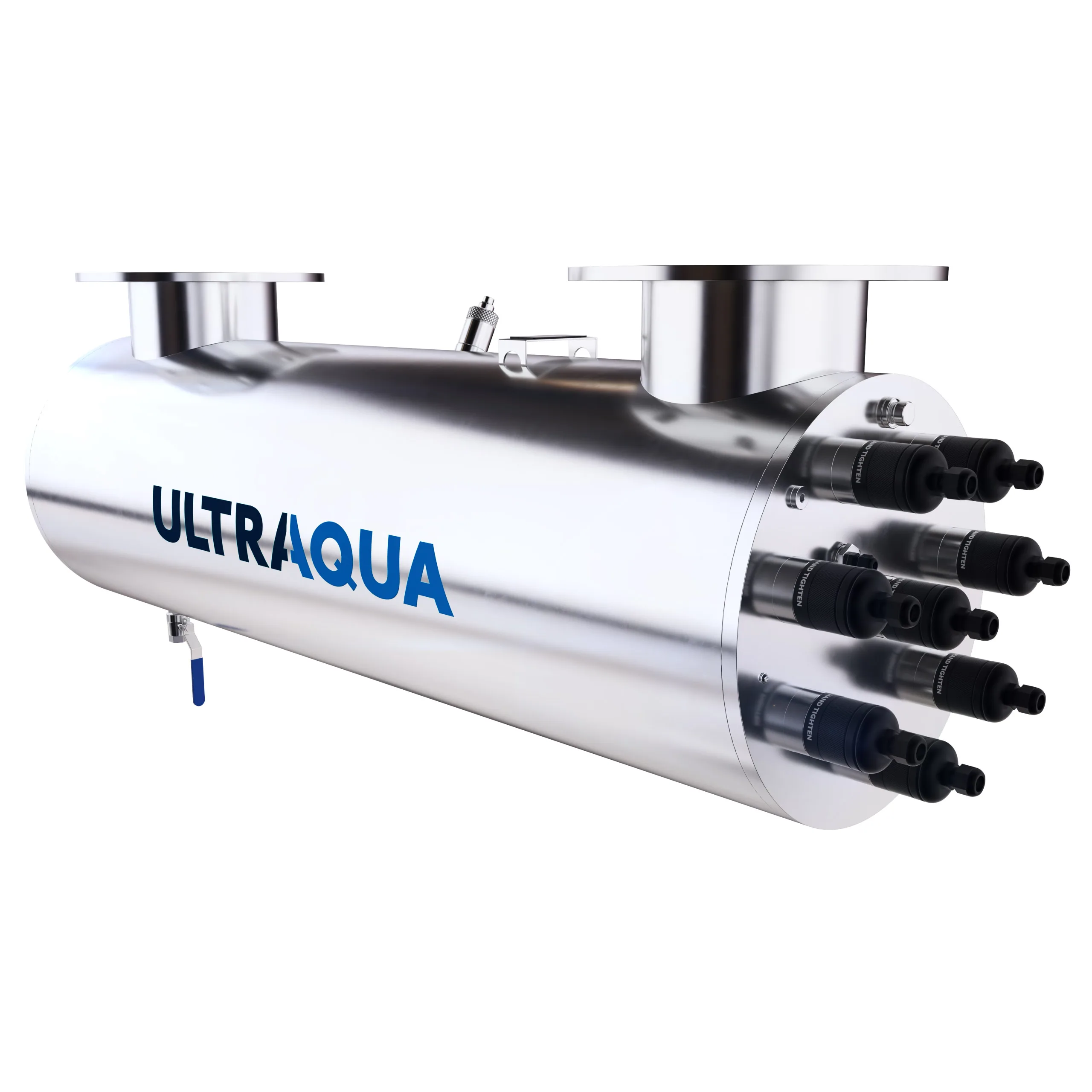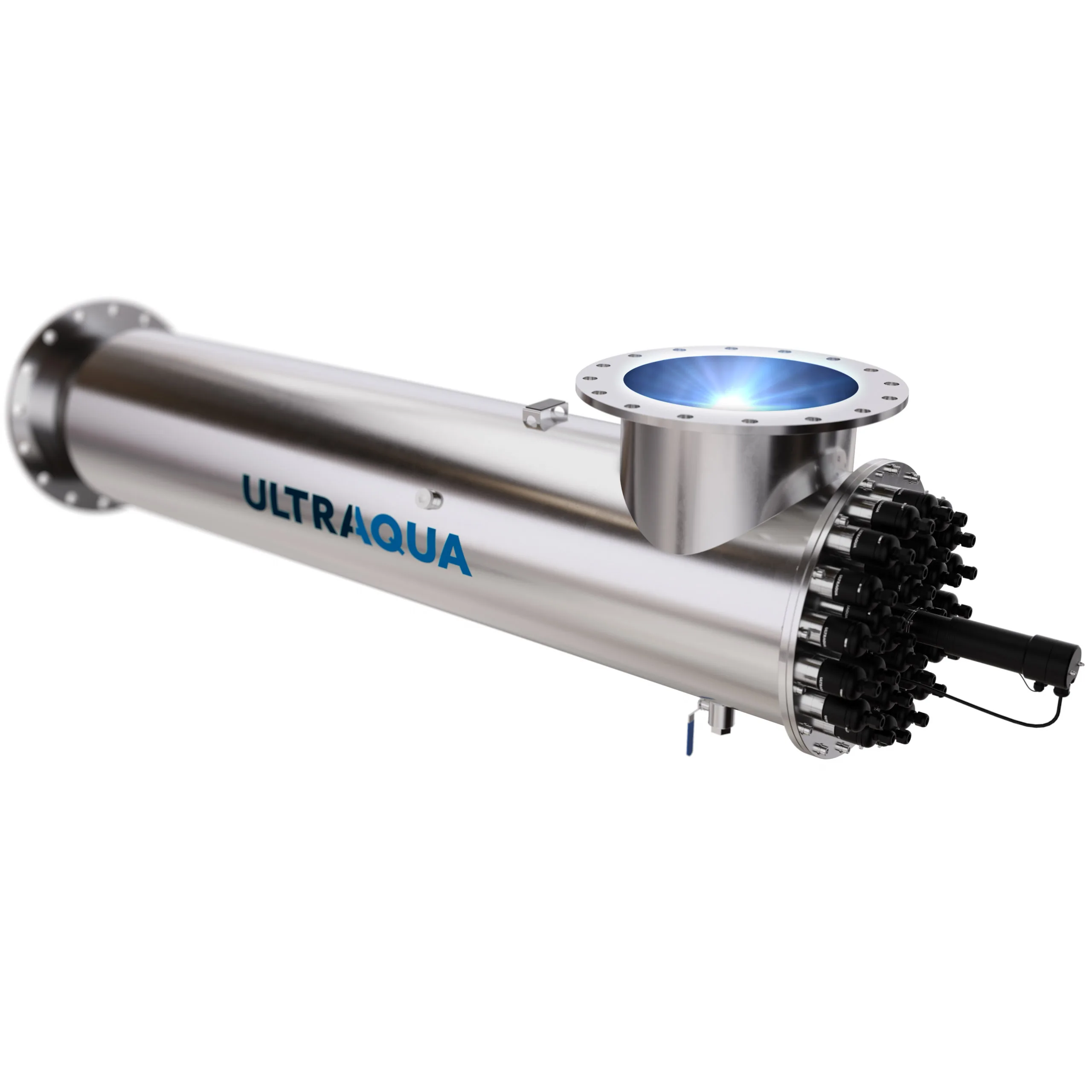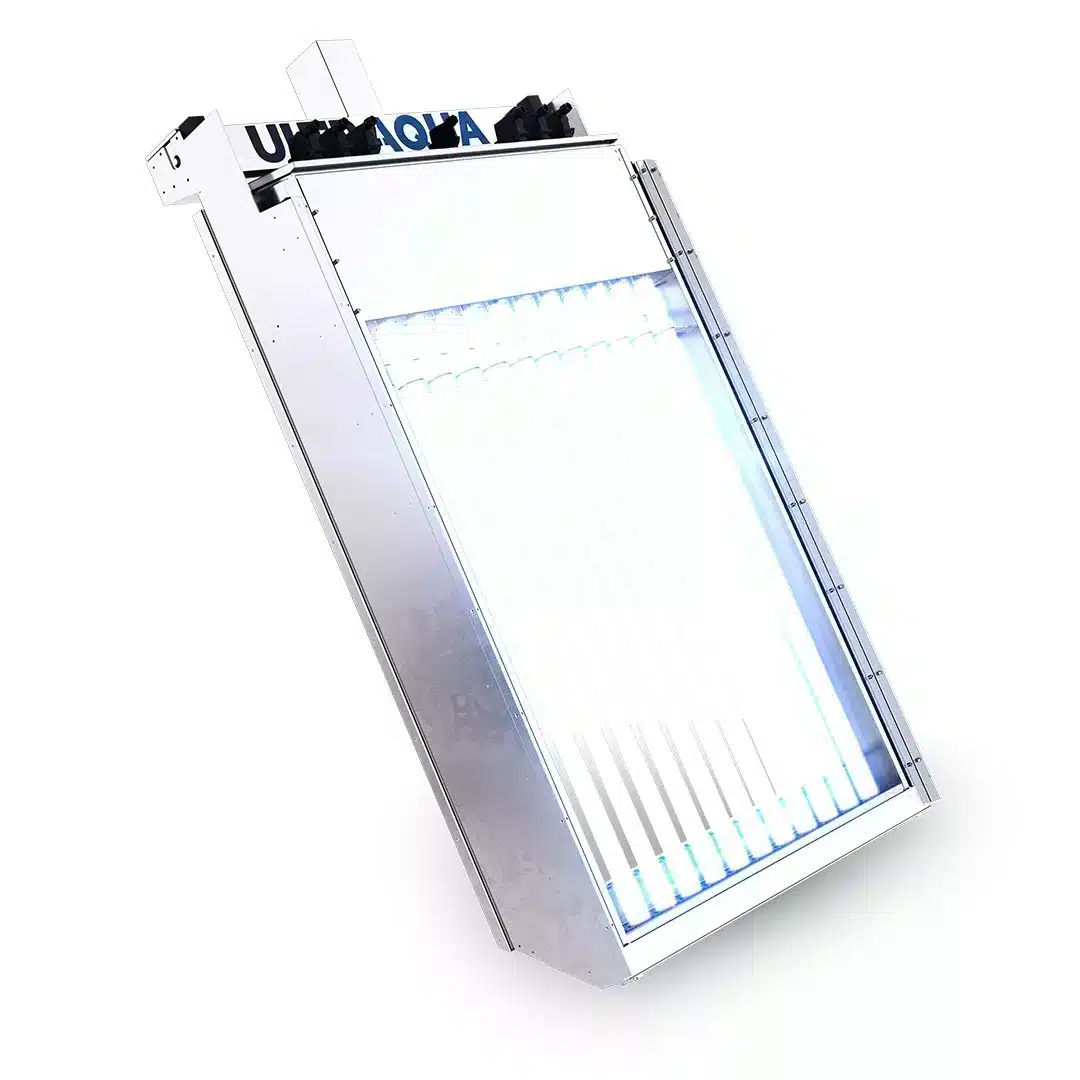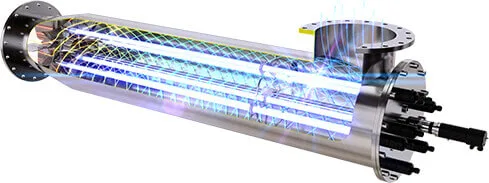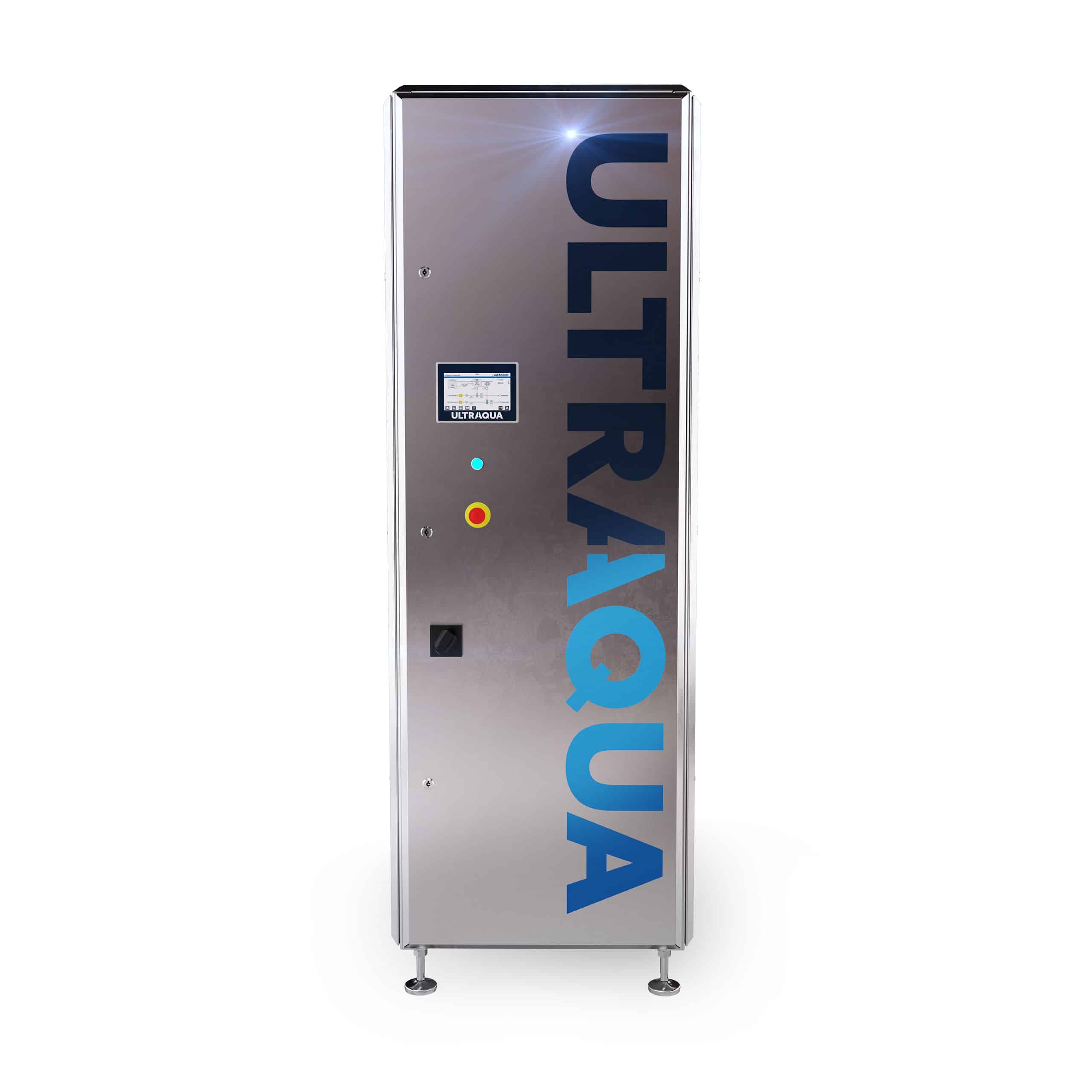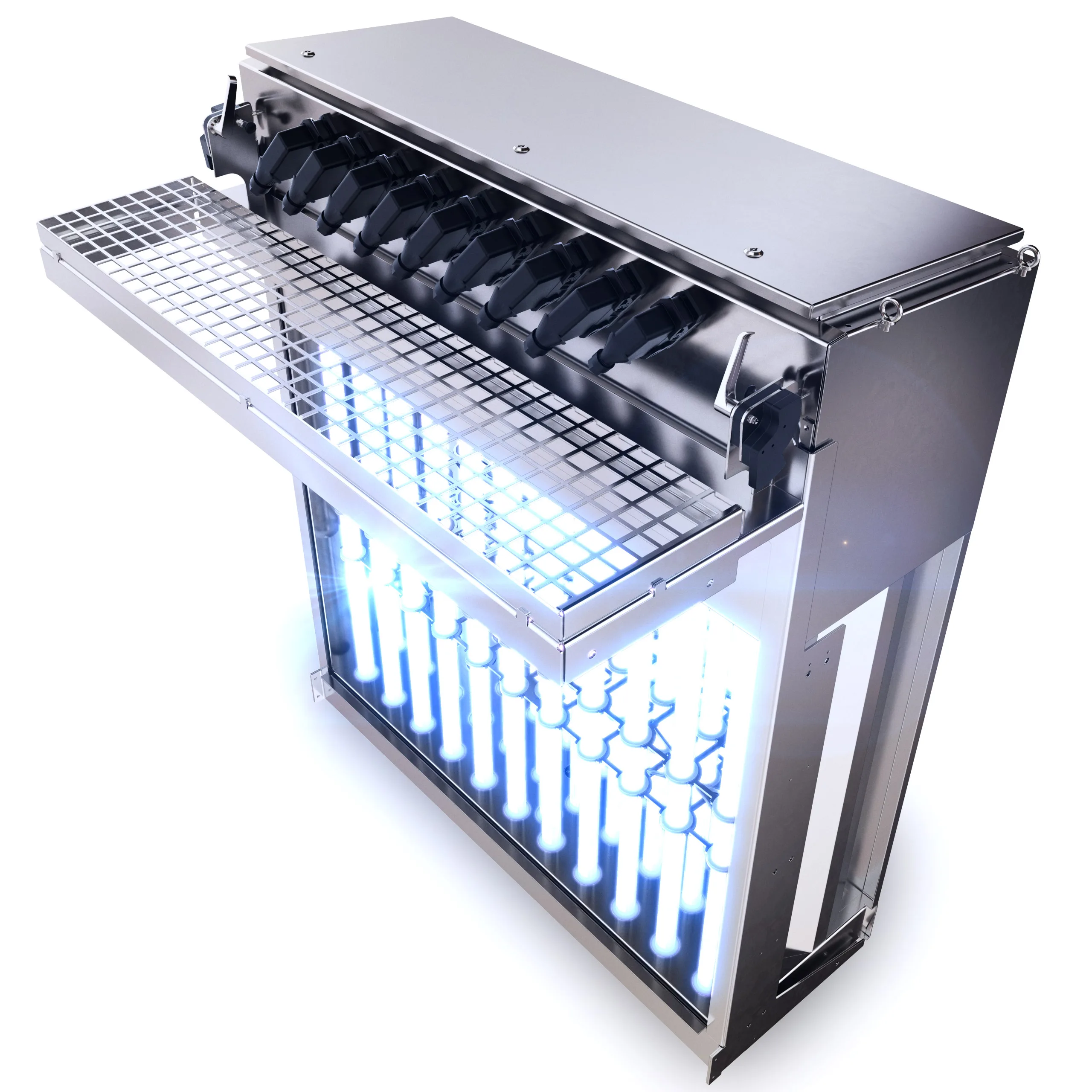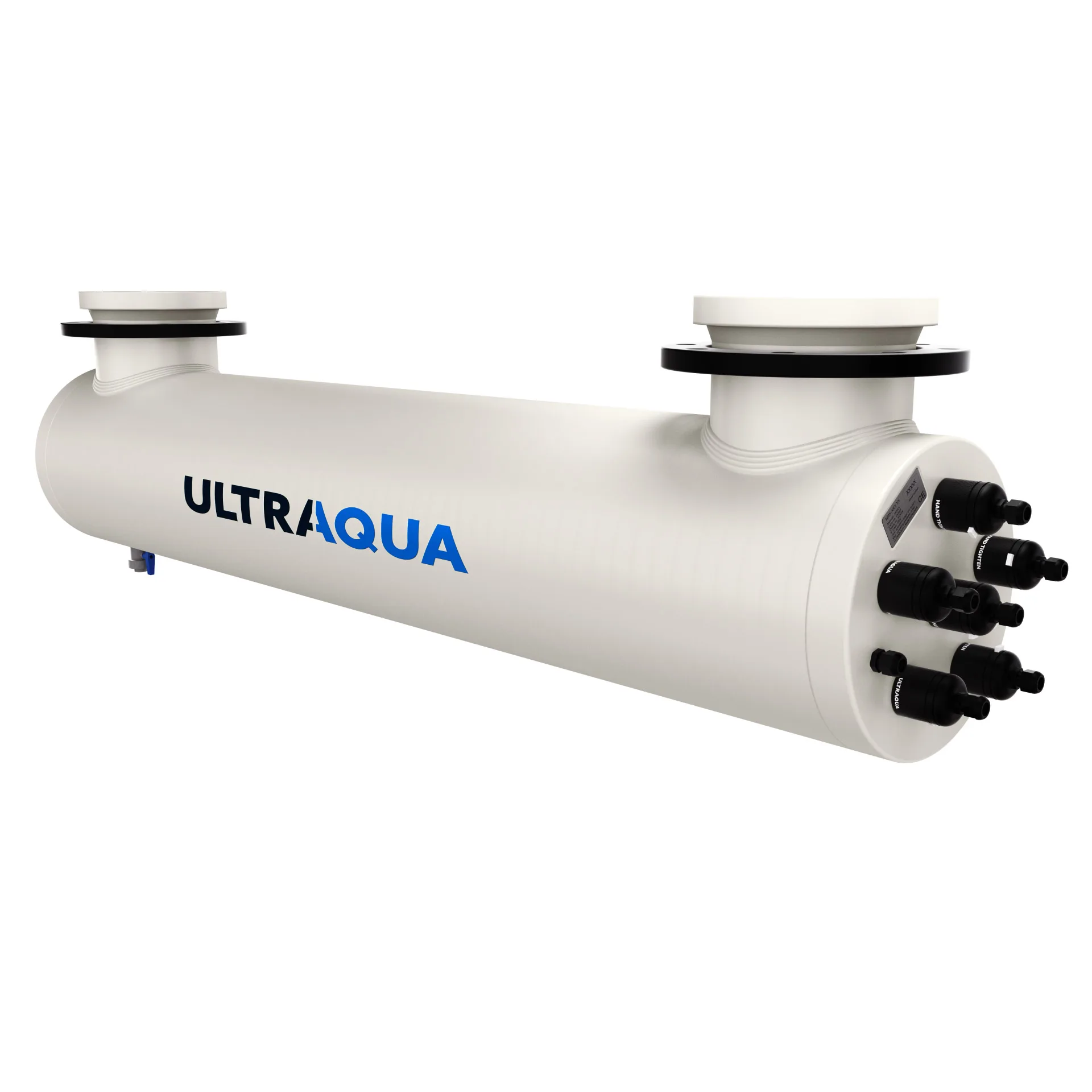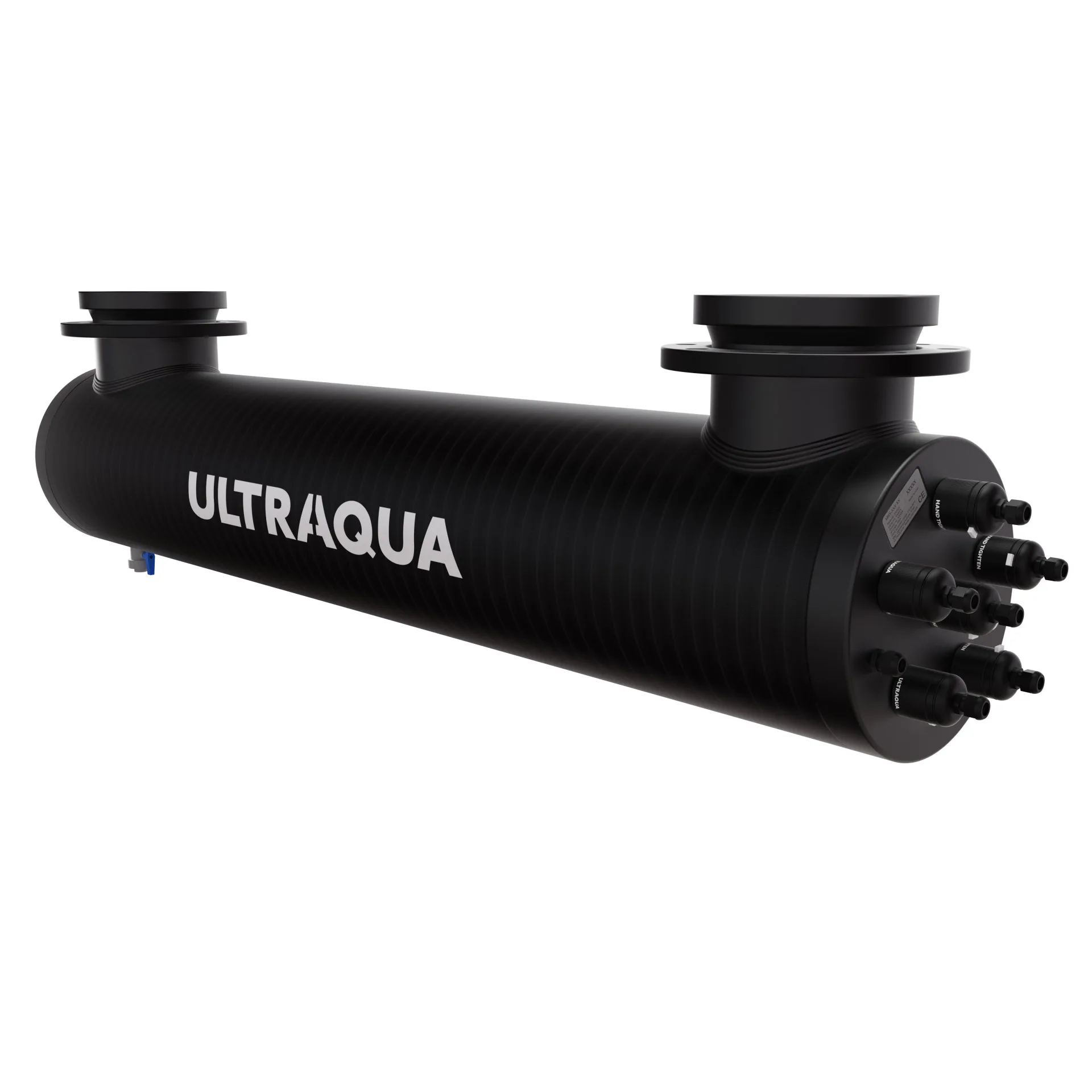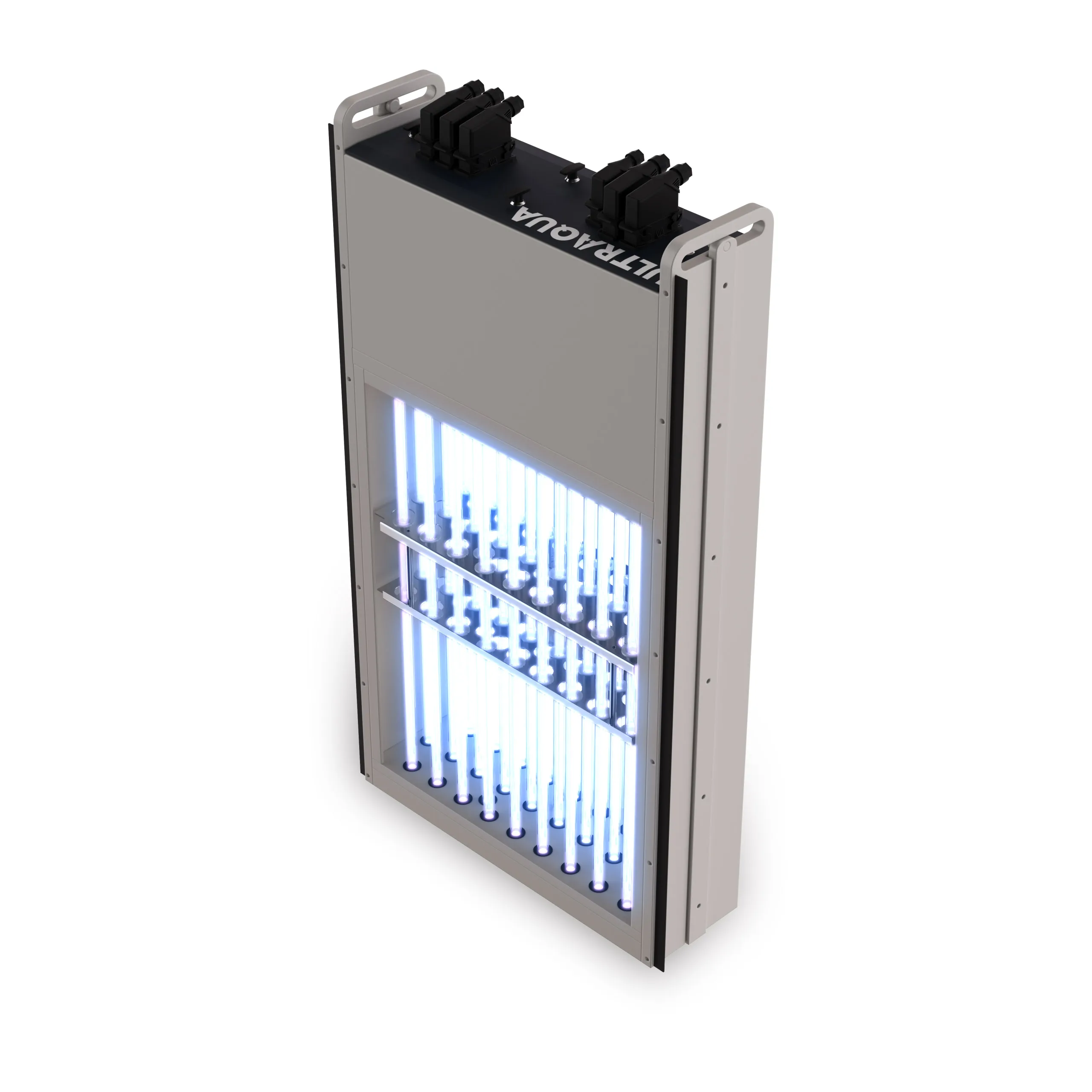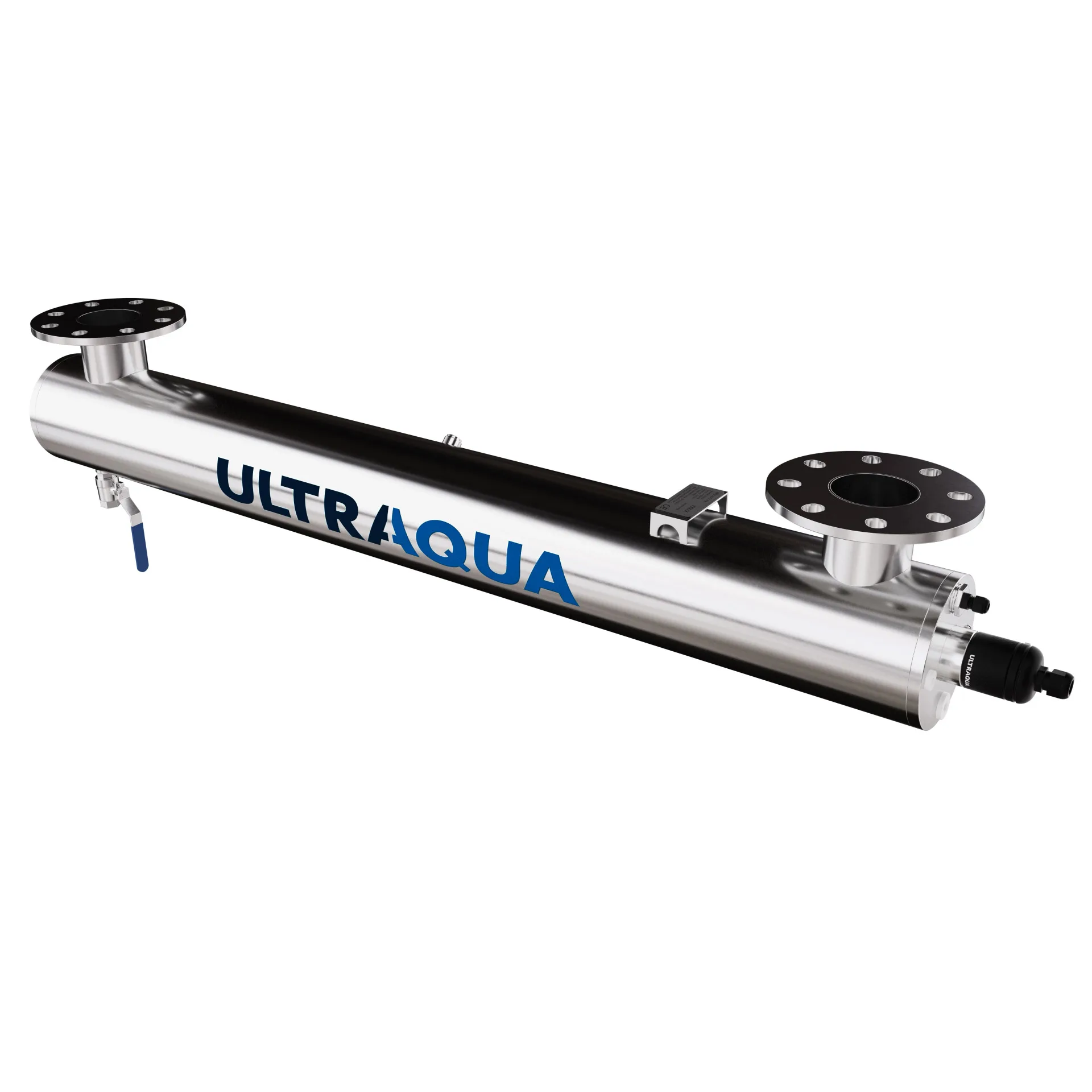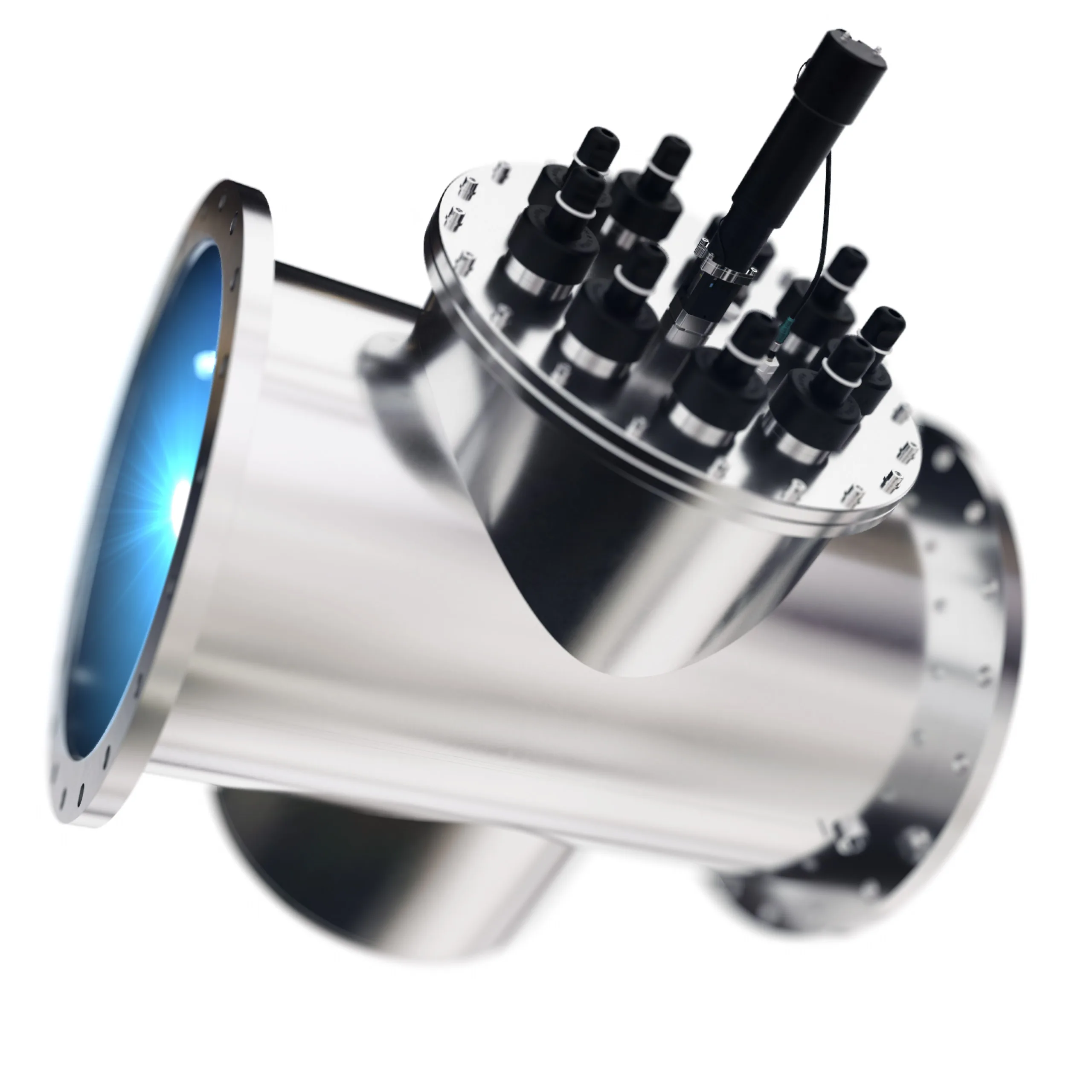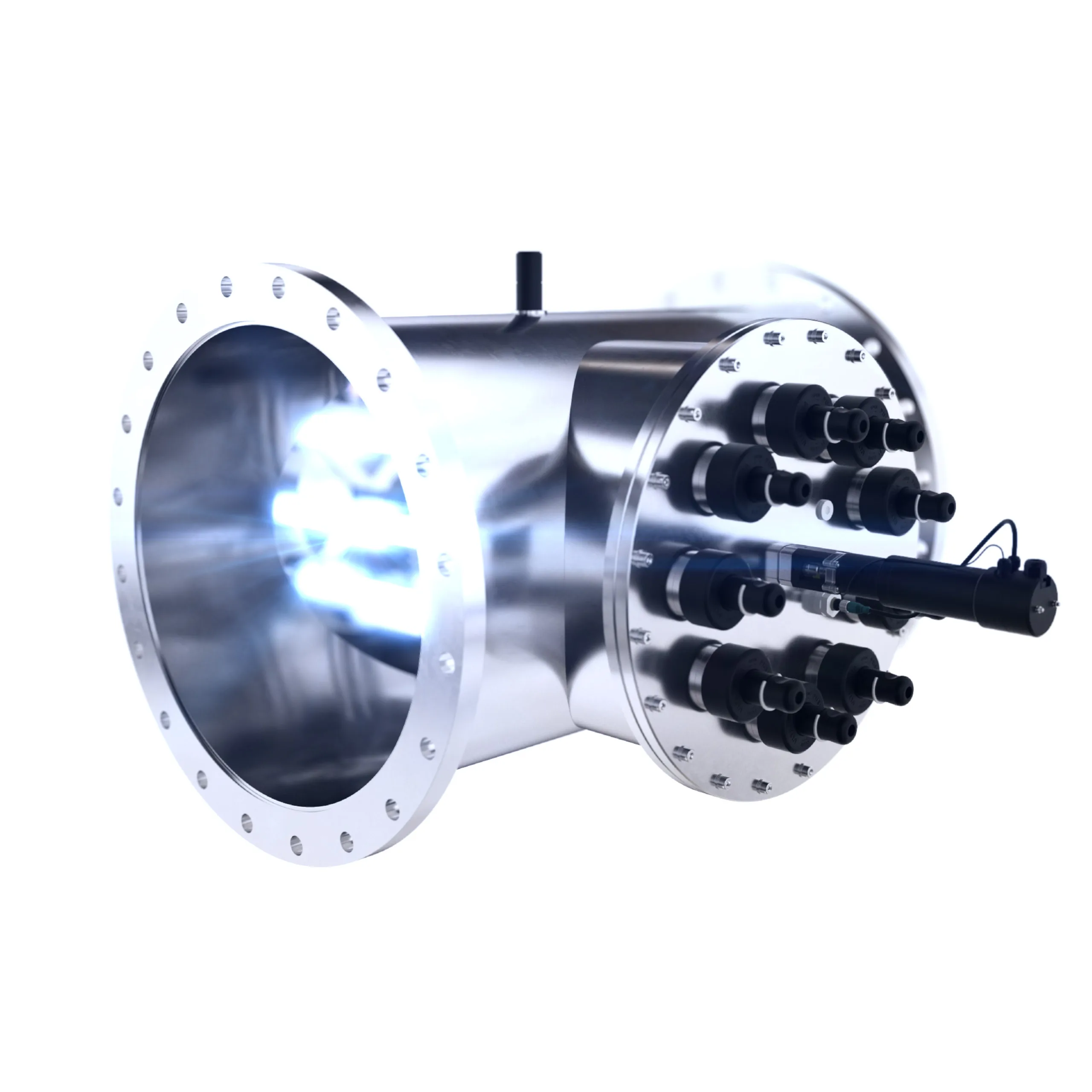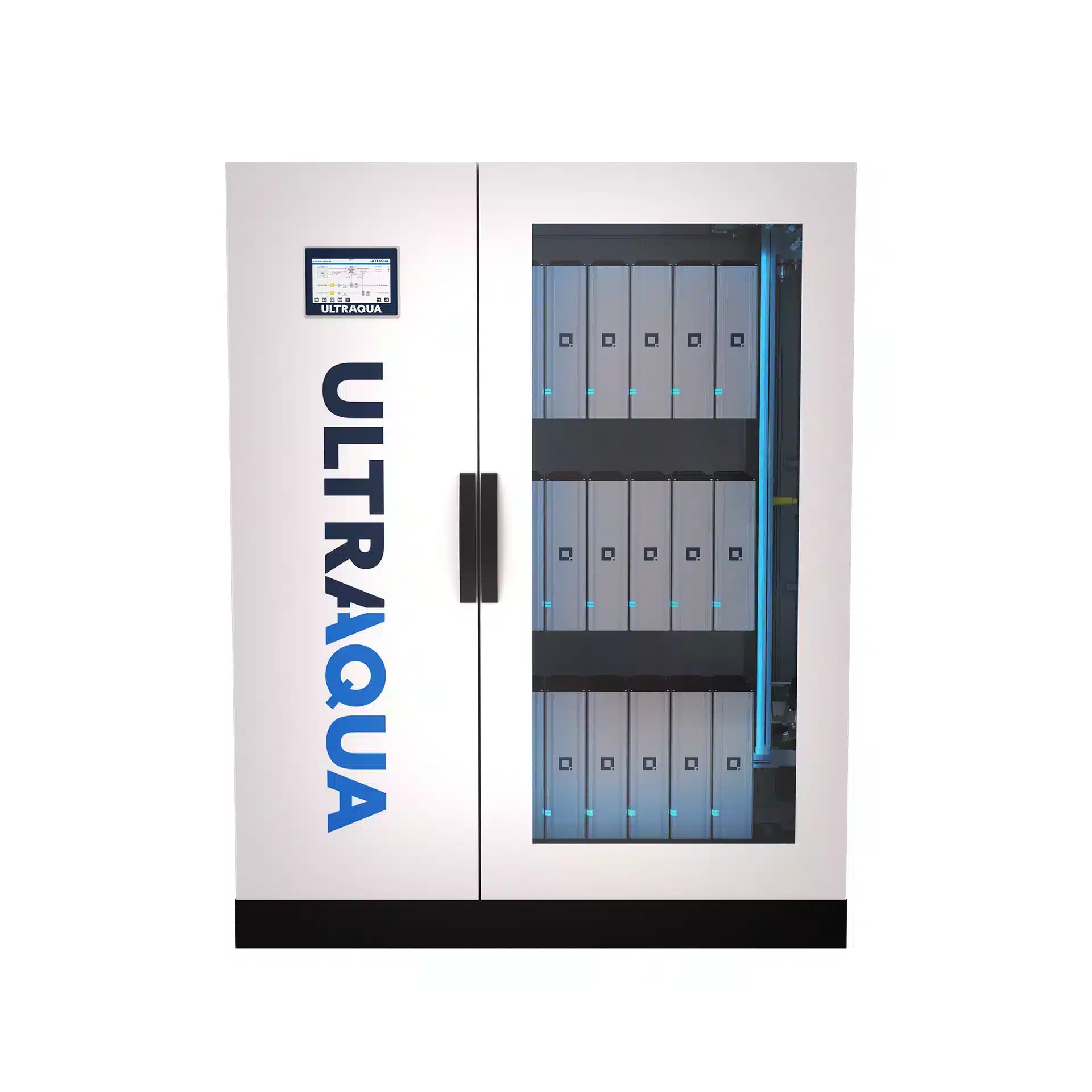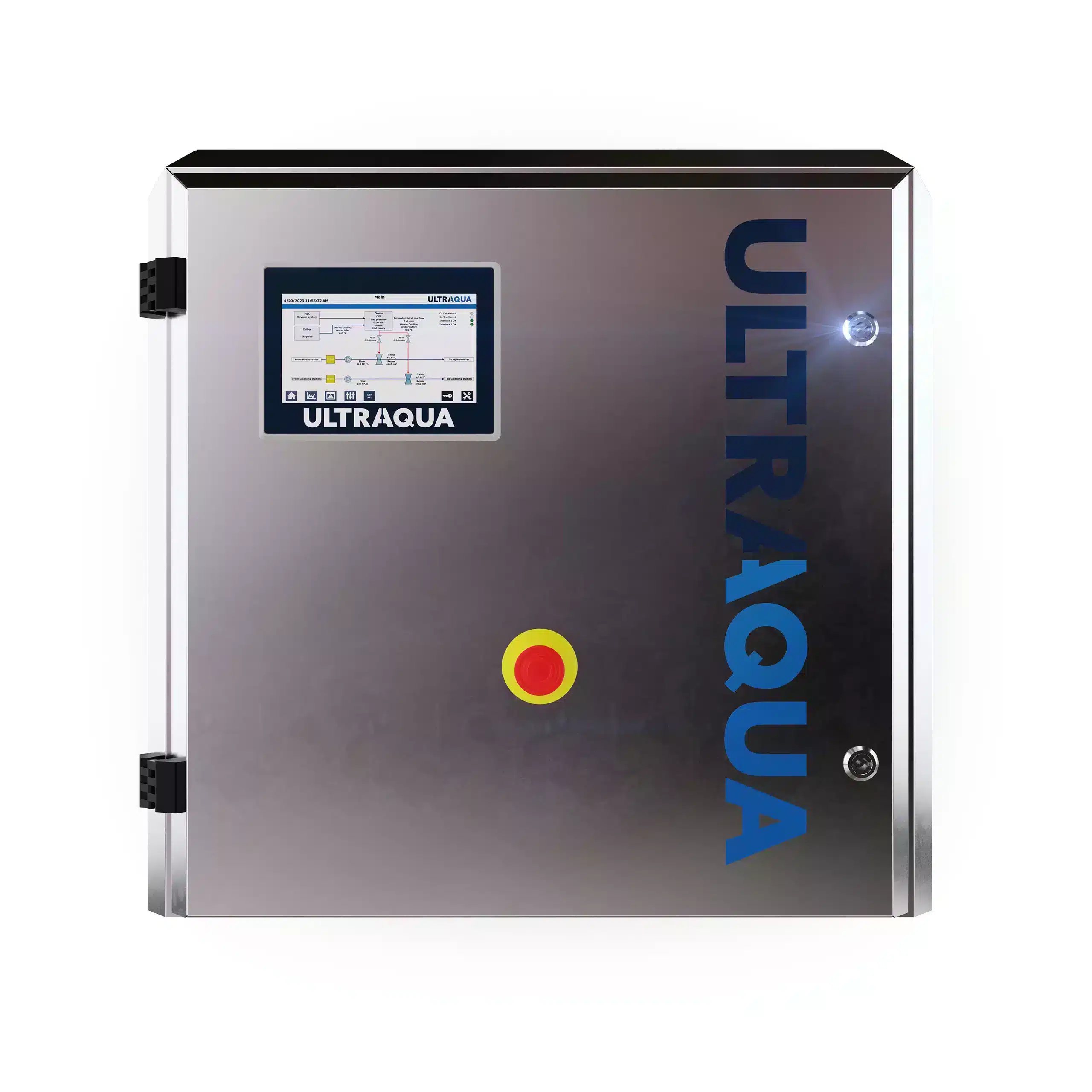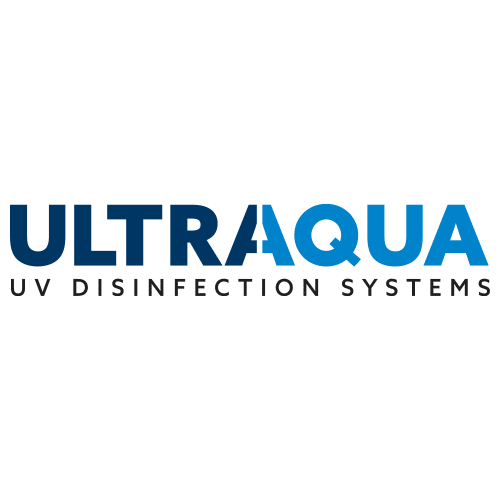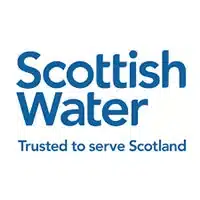Properly treated municipal water is the foundation of all communities. To meet the continuously increasing demand and quality standards, the need for sophisticated solutions has never been greater. Strongly relying on innovation and in-field experience, ULTRAAQUA UV has developed a wide range of UV disinfection systems to solve even the biggest municipal water disinfection challenges.
Learn more by choosing a related application or product.
Support throughout the entire process
Backed by 25+ years of research and innovation experience, our engineers and industry specialists offer a range of services to ensure optimized UV disinfection for your specific requirements. This includes engineering support, optimal UV system sizing for the selected application, 3D drawings, analytical support of water samples, on-site validation testing, and much more.
FREQUENTLY ASKED QUESTIONS (FAQ)
Find frequently asked questions regarding UV disinfection for this industry by clicking on a question below.
Why should I implement UV technology if I already use chlorine for disinfection?
A common part of the drinking water treatment path is chlorine, which has unfortunately proven to lead to several health complications such as respiratory diseases. Additionally, while chlorine has proven to be ineffective against Cryptosporidium and Giardia, UV treatment can inactivate these pathogens easily with very low doses. UV treatment is capable of inactivating all bacteria, viruses, molds, and spores that may be present in the drinking water while adding no chemicals or by-products to the process.
Why is UV disinfection a preferred method for treating drinking water?
UV disinfection is preferred for treating drinking water because it effectively inactivates all types of pathogens, including bacteria, viruses, molds, and spores, without the use of chemicals. This means there are no harmful by-products like those associated with chlorination, such as trihalomethanes (THMs) and haloacetic acids (HAAs). UV treatment also effectively targets resistant organisms like Cryptosporidium and Giardia, which are not adequately addressed by chlorine. Additionally, UV disinfection does not alter the taste or odor of the water and does not create harmful by-products like trihalomethanes (THMs) and haloacetic acids (HAAs), which can occur with chlorination.
Does UV disinfection impact the operational efficiency of drinking water treatment?
UV disinfection enhances operational efficiency by providing a disinfection method that is cost-effective in both capital and operational expenditures (CAPEX and OPEX). It requires less space than traditional methods and reduces the need for handling and storing hazardous chemicals. This efficiency translates into long-term savings and a lower total cost of ownership over the system’s lifecycle.
Can UV disinfection be used as the primary treatment method for drinking water?
When UV systems are used in conjunction with a small residual of chemical disinfection, UV can potentially eliminate the need for contact tanks, significantly reducing operational costs and improving performance. This makes UV systems capable of being a primary treatment method, with a dual approach to ensure that the water is safe to drink.
Can UV disinfection systems handle high volumes of water in drinking water facilities?
As modern UV disinfection systems are designed to handle high volumes of water, they are suitable for virtually any scale. The systems can be scaled and customized to accommodate the specific flow rates and water quality requirements of different facilities, ensuring efficient and effective disinfection for large populations.
Is UV disinfection a cost-effective solution for drinking water facilities?
UV disinfection is a cost-effective solution for drinking water facilities, especially when taking long-term operational costs into consideration. While the initial investment might be comparable to or slightly higher than traditional methods, UV systems have lower ongoing operational and maintenance costs. They require less energy, have fewer mechanical parts, and eliminate the need for chemical purchasing and handling, contributing to overall cost savings.
What are the advantages of using UV disinfection for municipal wastewater?
UV disinfection offers several advantages for treating municipal wastewater. It is a safe and effective method that avoids the use of hazardous chemicals, eliminating the risk of toxic by-products such as trihalomethanes (THMs) and haloacetic acids (HAAs). UV disinfection is also effective against chlorine-resistant pathogens like Cryptosporidium and Giardia, ensuring a higher level of public health protection.
Is UV disinfection a sustainable option for water treatment?
UV disinfection is indeed a sustainable option as it does not involve the use of chemicals and has a lower environmental impact compared to other disinfection methods. This means that it does not generate harmful by-products that can be released into the environment. Additionally, UV systems often have a smaller design footprint and lower operational costs compared to chemical disinfection methods, making them a more eco-friendly and cost-effective solution.
Are UV systems capable of handling the high flow rates of WWTP's?
The UV systems from ULTRAAQUA UV are scalable to handle virtually any flow rates seen in municipal wastewater treatment facilities. They are engineered for both secondary and tertiary treatment stages, offering scalability and customization to meet the specific needs of each facility. This ensures that all treated water meets the defined safety standards before being discharged or reclaimed.
How does UV disinfection impact the operational costs of WWTP's?
UV disinfection can positively impact the operational costs of wastewater treatment plants. While the initial investment in UV equipment may be higher compared to some traditional methods, the overall operational and maintenance costs are generally lower. UV systems have fewer moving parts, require less space, and do not need the ongoing purchase and handling of chemicals, which can lead to significant cost savings over time.
Are UV systems effective against antibiotic-resistant bacteria in wastewater?
Yes, UV disinfection is effective against antibiotic-resistant bacteria. The UV light inactivates bacteria by damaging their DNA, making it an effective solution for treating water that contains antibiotic-resistant strains. This is particularly important in municipal wastewater treatment, where such bacteria can be prevalent.
Can existing wastewater plants add UV systems without major changes?
Most of the time, UV systems can be integrated into existing wastewater treatment plants with minimal modifications. UV systems are designed to be compact and can be installed in various configurations to suit the existing infrastructure. This flexibility allows for a relatively straightforward integration process, making UV a viable option for upgrading and improving existing wastewater treatment facilities.
What range of groundwater contaminants does UV treatment address?
UV treatment is effective against a wide range of biological contaminants in groundwater. However, it may be beneficial to utilize other treatment methods in conjunction, to achieve the required comprehensive water quality improvement.
How does UV treatment compare to traditional groundwater treatment methods?
UV treatment offers a chemical-free alternative to traditional groundwater treatment methods, avoiding the use of potentially harmful chemicals to reduce the impact on our groundwater.
Is UV disinfection suitable for large-scale groundwater treatment applications?
UV disinfection systems are scalable to suit virtually any groundwater treatment application, providing an effective and efficient solution for groundwater protection. For complex cases, it may be beneficial to utilize other treatment methods in conjunction with UV disinfection.
Why is UV disinfection beneficial in stormwater overflow management?
UV disinfection can play a pivotal role in managing stormwater overflow as it is capable of neutralizing the pathogens and contaminants that can be present in such scenarios. This is crucial for preventing waterborne diseases and environmental contamination, especially in urban areas where stormwater can mix with sewage.
How does UV treatment benefit the environment regarding stormwater management?
UV treatment benefits the environment by ensuring that stormwater released into natural water bodies is free from harmful microorganisms. This helps in protecting aquatic ecosystems and maintaining the quality of water bodies.
How does UV treatment compare to traditional methods for disinfecting stormwater?
UV treatment is more environmentally friendly than traditional methods, such as chlorination, as it does not produce harmful by-products. It is also effective against a broader range of pathogens, including those resistant to chlorine, such as Cryptosporidium and Giardia.
Why is UV disinfection beneficial for treating landfill leachate?
UV disinfection is beneficial for treating landfill leachate because it effectively neutralizes harmful pathogens and organic contaminants. This process ensures that the leachate, when released or repurposed, does not pose a threat to the environment or public health.
How does UV treatment compare to traditional methods for leachate disinfection?
UV treatment is more environmentally friendly than traditional methods, as it does not involve the use of chemicals. Additionally, it is highly effective against a broad spectrum of microorganisms and can be more cost-effective in the long run due to lower operational and maintenance requirements.
Can UV systems handle the high contaminant load typically found in landfill leachate?
Modern UV systems are designed to handle high levels of contaminants. They can be customized to the specific composition of the leachate, ensuring effective disinfection regardless of the contaminant load. For complex chemical compounds, utilizing UV AOP systems may be the best choice.
